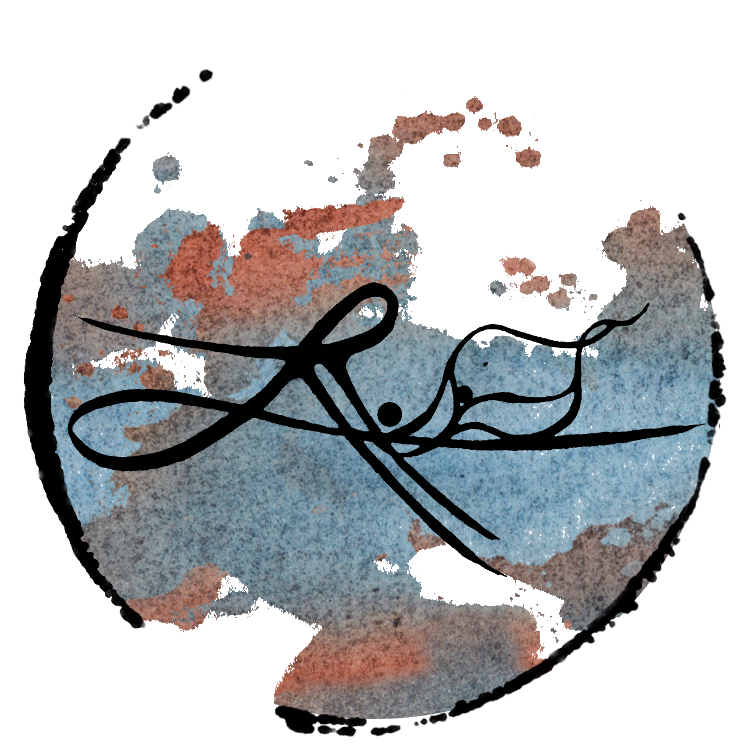
It’s been two weeks since my piece “Gods Like Mountains, Gods Like Mists” set off a fascinating and wide-ranging discussion about anthropocentrism in polytheist ritual and theology. In case you were wondering — yes, I’ve been busy reading, thinking, digesting and working on a follow-up post (or six!) of my own that I’ll be sharing here soon. In the meantime, I wanted to point out some amazing writing elsewhere in the blogosphere.
(Quick shameless plug: Many of these posts were originally shared to the G+ Druidry Community — so if you want to get regular updates on great articles and participate with other Druids and Pagans in thoughtful conversation, please come on over and check us out!)

“The magic cannot be separated from the land,” Sara Amis writes in “Poison in the Heart of the World,” a powerful, earth-rooted response to the chemical spill in West Virginia that left hundreds of thousands of people without water this month. In her post, Sara doesn’t just evoke her own soul-deep connection to Appalachia, but calls out the underlying bigotry and greed that has served to denigrate both the land and its people for generations:
How can this be? How can the rest of America sit by complacently and watch this unfold, with barely a flicker of outrage? Well, part of the reason is that we have been carefully taught that Appalachia is a worthless backwater, full of ignorant, racist, inbred, willfully impoverished, disposable people who aren’t worth listening to and can’t be saved.
Understand that this is a lie. Understand that it is a lie that has legs because it serves the interests, not only of the rich and powerful, but of every person who benefits from cheap coal and natural gas. This means you. If you live in the service area of a coal-burning plant…and you probably do…understand that people who look and sound like me die to keep your lights on. You are complicit, but so am I. We live in a world that shapes our choices, and only through a collective rebellion can we change that reality in a way that will do some good. That’s why politics, rather than personal moral choice, is the answer to certain kinds of systemic problems.
If you only read one post today, make it this one.

I recently picked up Joanna van der Hoeven’s Zen Druidry and have been enjoying the elegant way she weaves the insights of Buddhism and modern Druidry together in a tapestry of mindfulness and inspiration. She shares some thoughts on her practice in a recent blog post, “Zen and the Awen“:
Using the techniques from Zen for training the mind and the love of nature from Druidry we can find a way to immerse ourselves in our spirituality that is so deeply integrated on so many levels. When out walking in the forest, we can lose our sense of self in order to become the forest. Once we are the forest, we are able to drink deeply from the flow of awen that is all life around us. We become the trees, the deer, the fox, the boulder, the streams and the badger. We can learn so much from this integration which can also rejuvenate us, providing us with even more inspiration. We are not looking at ourselves being at one in the forest; we have lost even that in order to become the forest. When we are fully immersed in simply “being”, we are fully in the flow of awen.
Her exploration of interconnection and compassion brings another dimension to Druidry that I think can too often be overlooked, and I think her work in general is a wonderful example of the fruits to be found in multiple religious belonging.

In her post “A is for Apple,” Heather Mingo revels in the delicious relationship humans have with this iconic fruit:
We may have shaped the apple tree, but in turn it has shaped us and our culture, in an interspecific relationship that has grown so tight, neither of us would exist as we are today without the other. I think that today it is easy to forget the extent to which human culture has been shaped by the non-human, thinking that it is we who shape it, and not the other way around. But most relationships go two ways… For thousands of years, the apple has been our companion, food, fuel (as wood), symbol in our myths and stories. And it remains our companion today.
I confess to having a nerd-crush on Heather, whose writing about the natural world always shines with a clarity and simplicity that brings me right back to the heart of my own earth-centered spiritual path. I dare you to read this post without craving the satisfying crunch of a crisp, juicy apple between your teeth…

Speaking of the relationships with nature, Dana Lynn Driscoll explores the principles of permaculture from a Druidic perspective in her post, “Introduction To Permaculture: Terminology And The Ethical Triad“:
Sustainability means “the capacity to endure.” I use the concept of sustainability broadly in introducing the work that I’m doing as part of my Druidic path—people understand that term, what it means, and are immediately able to have some idea of where I am coming from. The reason I turn to the concept of sustainability (rather than eco-awareness, green living, environmentally-friendly or other terms) is that sustainability implies a set of actions and an end goal, whereas “green” and “eco” are now mostly associated with a set of products to be purchased. Avoiding consumer-based terms is especially important since the worldview and actions behind consumerism are huge parts of the challenge we face in creating more sustainable futures. In this blog post, I’m going to discuss the terminology and principles that are associated with sustainability, in particular, explore the connections between druidry and permaculture that give us both an ethical system and a set of core ways of interacting with the world.
Dana’s post combines a thoughtful approach to ethics with a practical understanding of human and more-than-human community. If you’ve ever been interested in permaculture (and c’mon, of course you have!), there’s a lot packed into this short piece.

Back in November, Milla shared a quiet, meandering post, “The Lovely Bones,” on the need to balance productivity and activity with the space and solitude to wander:
Sometimes I feel, how do I describe this correctly…like I just want to walk out into the woods without a coat and never come back. When I was in high school, it was my secret dream to some day be a famous author. Once I accomplished this, it was my thought, I would live in a small cabin, full of books, on a hillside in some Norwegian fjord with a sheep dog and never talk to anyone. Basically, I guess, I was planning to be a famous recluse. […] There’s always been a big part of me that just wants to wander aimlessly and make things that mean absolutely nothing and have no discernible purpose.
Oh, how these words ring true! I love Milla’s blog for a couple reasons. One, her posts have a certain spaciousness, like delicate nests woven out of words and images — her writing interspersed with photography always slows me down and centers me in the midst of a busy day. Two, she lives on a homestead out here in Puget Sound Country, and I’m constantly both envious and humbled by her explorations of the land that I also call home.

Thanks for the link, Ali! I think your nerd-crush might be reciprocated 🙂 I’ve long admired and looked up to your writing, so I’m thrilled to hear that my own posts make you feel that way.
And I’ve been looking for some new and interesting blogs to read, so I’ll be sure to visit the other posts you shared here as well.
LikeLike
Thank you so much for your kind words. I love your blog, and it is an honour – you are deeply inspiring! x
LikeLike
Aww! Thanks, you guys! 🙂
LikeLike